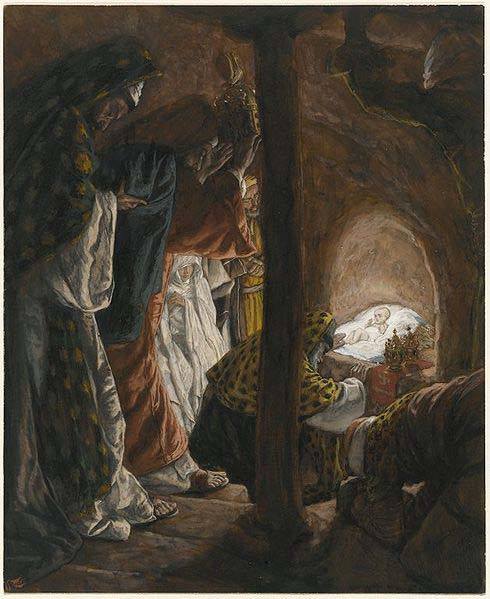In 1865, the manager of a maritime insurance company in Glasgow, Scotland, lay bedridden with a sudden, severe illness. Suffering from both physical and mental despair, William Chatterton Dix leaned on the promises of Christ during this period, penning the poem, “The Manger Throne.” The title probably isn’t familiar, but many of the words, phrases, and lyrics are; go to LSB 370, and you’ll find the very familiar Christmas hymn this poem eventually formed, one which asks a very well-known question:
“What Child Is This?”
The world of the 21st century wants to avoid this question. For many folks, Christmas becomes a time to reflect on the activities of the past year and to launch into the New Year. It has lost meaning even as a season to share a religious observance with family and friends. But with the stroke of a pen, Mr. Dix answered in song the most important question ever asked in the history of the world: what child is this?
In his hour of great need, the hymn writer found comfort in what This Child—the Word made flesh—does for him. One day nails and spear would pierce through This Child. One day This Child would bear the cross—for me, for you. That’s the way the King of kings pleads for sinners here and brings salvation.
Here at Concordia Theological Seminary, Fort Wayne, we form and equip servants to bring the Good News of Jesus, This Child of Bethlehem. We prepare these servants to answer the questions of a world desperately in need of a Savior.
In the third stanza, Mr. Dix reminds us that gifts of incense, gold, and myrrh are freely given. Such gifts—given out of love and reverence—become traveling money for the Holy Family’s flight to Egypt, in their hour of great need.
Today we ask for your prayers and your financial support. Please consider a gift to the Seminary to prepare men and women to deliver the Good News of This Child. You can give today at https://my.ctsfw.edu/giving-tuesday.

As a point of interest, here is “The Manger Throne” by William Chatterton Dix in full:
LIKE silver lamps in a distant shrine,
The stars are sparkling bright
The bells of the city of God ring out,
For the Son of Mary is born to-night.
The gloom is past and the morn at last
Is coming with orient light.
Never fell melodies half so sweet
As those which are filling the skies,
And never a palace shone half so fair
As the manger bed where our Saviour lies;
No night in the year is half so dear
As this which has ended our sighs.
Now a new Power has come on the earth,
A match for the armies of Hell:
A Child is born who shall conquer the foe,
And all the spirits of wickedness quell:
For Mary’s Son is the Mighty One
Whom the prophets of God fortell.
The stars of heaven still shine as at first
They gleamed on this wonderful night;
The bells of the city of God peal out
And the angels’ song still rings in the height;
And love still turns where the Godhead burns
Hid in flesh from fleshly sight.
Faith sees no longer the stable floor,
The pavement of sapphire is there
The clear light of heaven streams out to the world
And the angels of God are crowding the air,
And heaven and earth, through the spotless birth
Are at peace on this night so fair.
